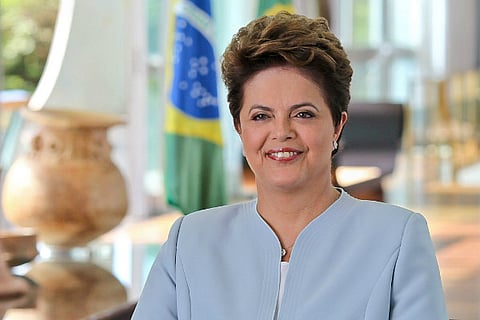

By Nikolai S. Diaz
Amidst political turmoil in Brazil following the president's impeachment, let us take a few minutes to know Ms. Rousseff a little more.
Who is Dilma Rousseff?
Dilma Vana Rousseff is an economist, elected in 2010 as the President of Brazil and took office on January 1, 2011. In the 101 years of the Republic, she is the first woman to hold the highest position in the country. As of May 2016, she has been suspended from office during an impeachment vote.
What is her political background?
Rousseff’s past is reminiscent of famous anti-capitalists movements and figures throughout the 20th century. She has a certain appeal for generations of people who grew up with a Che Guevara or a Ho Chi Minh posters in their rooms. A daughter of a Bulgarian immigrant and a Brazilian school teacher, she was attracted to socialist and left wing philosophies. Following the 1964 coup d’état and with the aim of fighting the dictatorship which was sympathetic to western powers, she joined Marxist guerrilla groups
where she wrote for underground newspapers and taught Marxist ideology to newcomers. Becoming a growing figure of the resistance, she was captured by the military police and sentenced to jail. While in captivity, she was tortured from 1970 to 1972.
What is her political trajectory?
After being released from prison, she moved to the southern parts of the country with her husband (who was also arrested around the same time she was), and got a degree in economics, as well as giving birth to a daughter. Whilst the military rule slowly started to whither and fade, she became more and more involved in the political life of Brazil and campaigned to help her husband gain a seat in the state
congress, which he won in 1982. After being appointed to various positions in city and government offices, she was promoted to the ministry of energy in 2003, under the Presidency of Luiz Inacio Lula da Silva presidency, himself a man who rose from humble origins. He became a mentor for Rouesseff, and also appointed her as his chief of staff in 2005. From there she campaigned for herself under the banner of the Worker’s Party for the presidency with Lula’s blessings.
Why has she been impeached?
President Rousseff is under investigation, not for being involved in affairs such as the “Menselao” or “Operation Car Wash” scandals, nor for the country’s terrible financial situation which decreased by 3.8
percent in 2015, but for having diverted public funds to other areas of the economy in order to hide or attenuate fiscal deficits. She is accused of using banks run by the state to fund everyday expenses. Under the country’s fiscal laws, these manipulations are considered a crime only under certain circumstances, for example taking loans from state run banks without the approval of the congress.
She claims it is a coup. Is it?
One of the arguments of Rousseff is claiming that previous governments also used these financial techniques to maintain financial stability. The governments of Lula and Fernando Henrique
Cardoso also used similar manipulations but were never threatened withimpeachments and political suspensions. Rousseff’s Worker’s Party, a centre left party was formed from the opposition of military
dictatorship following the 1964 coup. Soon after Vice President Michel Temer, took office, he announced that the new government would be taking a series of austerity measures to curb deficit by reforming the pension system and the minimum retirement age. Temer, more sympathetic to centrists movements also appointed former central bank President Henrique Meirelles, a business friendly banking executive more popular with investors. This might not be observed as a military coup in the classical sense of the term, but indeed, there seem to have been political manoeuvres in order to change the course of the countries’ finances.
News, views and interviews- Follow our election coverage.
Click TN Election Special
Click Kerala Election Special